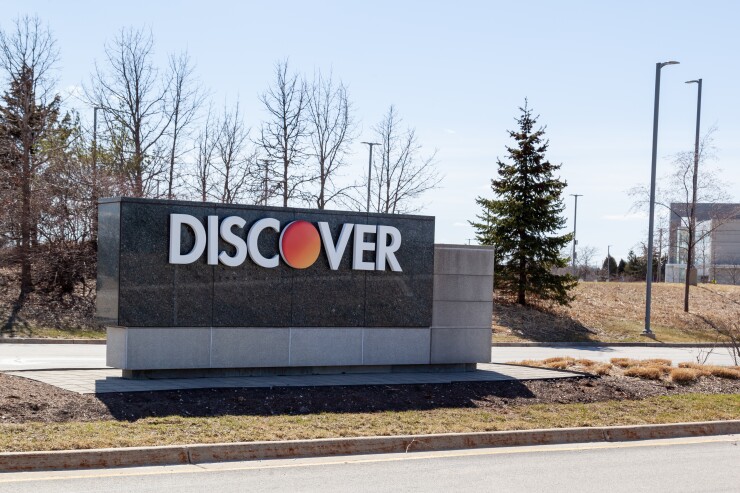Discover Financial Services expects to pay $1.2 billion to settle a lawsuit from merchants that it
The credit card company, which disclosed the news late Wednesday, had already set aside the money to cover the refunds it will pay under the agreement.
The settlement clears up one of the legal headaches that Capital One would have to resolve if regulators approve the merger.
The companies are preparing to make their case for the merger at a July 19 public hearing that regulators have scheduled. Some consumer groups are
The merchant overcharging issue was one of several that likely led to the
The agency
"These can be very big undertakings," Fairbank said in February when asked about the issue. "The great thing is, we are mostly buying businesses we're already in. Therefore, we have the compliance and risk management infrastructure, governance processes, not just as a company but also in those businesses."
A top Discover official
One business that's been a perennial compliance headache for Discover has been private student loans, where improper servicing practices have repeatedly drawn the ire of the Consumer Financial Protection Bureau. After years of regulatory skirmishes, Discover
Capital One and Discover's merger math assumes the company would exit the private student loan business. That outcome seems imminent, with the Financial Times
The merchant settlement announced this week is still pending court approval, Discover said in a securities filing. The company disclosed the issue last July, saying that a mistake in classifying some accounts had prompted it to overcharge merchants for nearly 16 years.
That, combined with news of a looming FDIC consent order, prompted a sharp fall in the company's stock price and made it a cheaper acquisition target.
In its quarterly report last March, Discover said it had upped its estimate for how much it would pay to "advance resolution of the matter more quickly" due to the pending merger with Capital One.
It also cautioned about the potential for more regulatory fallout from the merchant overcharging issue, saying it's still discussing it with regulators and "expects these discussions will likely result in enforcement actions."







